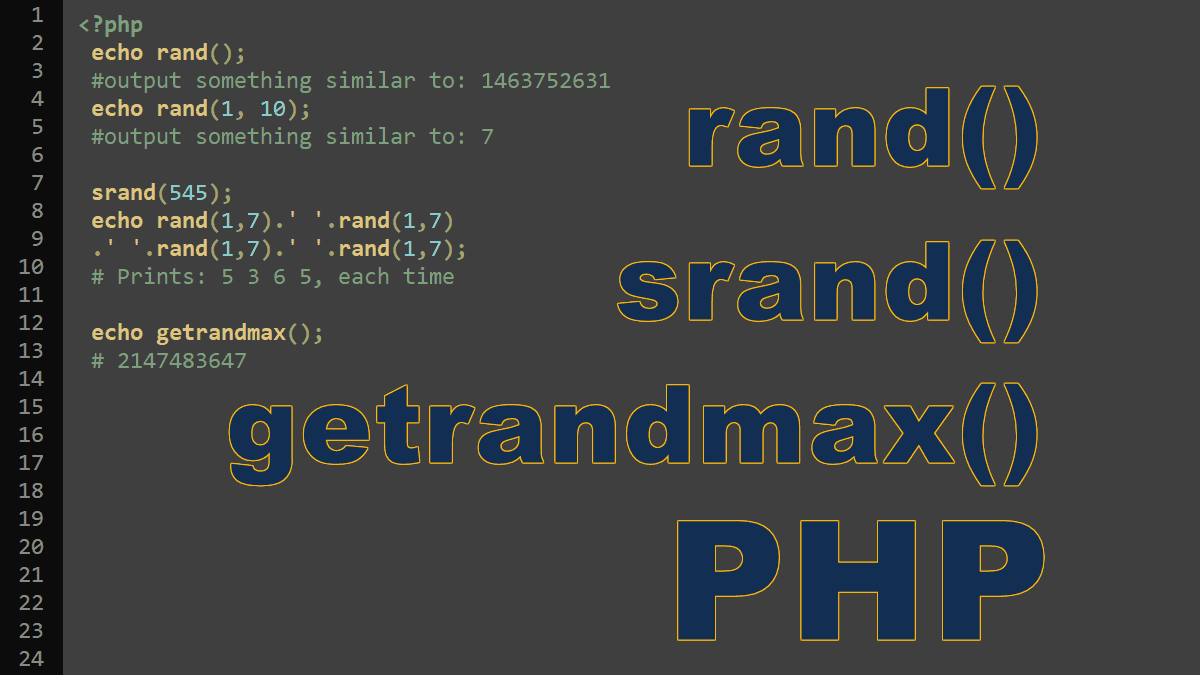rand()
<?php //Syntax 1: rand(): int //Syntax 2: rand(int $min, int $max): int
Since PHP version 7.1 the rand() function is an alias of mt_rand() function, it optionally takes two parameters:
$min(default value is 0): The lowest value to return$max(default value is getrandmax() ): The highest value to return
When called with no arguments, rand() returns a random number between 0 and the value returned by getrandmax(). When rand() is called with two arguments, the $min and $max values, the returned number is a random number between $min and $max. See this example:
<?php echo rand(); #output something similar to: 1463752631 echo rand(1, 10); #output something similar to: 7
mt_rand()
The rand() and mt_rand() functions shares the same syntax and since PHP version 7.1 there is no difference between both functions as described in the PHP documentation: As of PHP 7.1.0, rand() uses the same random number generator as mt_rand().
Before PHP version 7.1, if you need a very large amount of random numbers use the mt_rand() function it has a period of 219937-1, far better than rand(): 232.
getrandmax()
<?php //Syntax getrandmax(): int
The getrandmax() function returns the largest possible random value, see this example:
<?php echo getrandmax(); # 2147483647
mt_getrandmax()
The getrandmax() and mt_getrandmax() functions share the similar syntax, and since the PHP version 7.1 both returns the same output.
srand()
<?php //Syntax srand(int $seed = 0, int $mode = MT_RAND_MT19937): void
The srand() function takes two parameters:
$seed: An arbitrary integer value.$mode: Specify an algorithm to use with the following constants:MT_RAND_MT19937
Uses the fixed, correct, Mersenne Twister implementation, available as of PHP 7.1.0.MT_RAND_PHP
Uses an incorrect Mersenne Twister implementation which was used as the default up till PHP 7.1.0.
By default PHP automatically seeds the random number generator functions. You can manually seed the random number generator to generate a predictable series of values, see the following example:
<?php
srand(545);
echo rand(1,7) . ' ' .
rand(1,7) . ' ' .
rand(1,7) . ' ' .
rand(1,7);
# Prints: 5 3 6 5
# Because a specific value was passed to srand(),
# the same random number will genrated each time,
# you run the code.
Note: If you want to generate a unique random number each time the script runs, don’t use srand() or mt_srand() function to seed the rand() or mt_rand() functions as it is done automatically.
mt_srand()
The mt_srand() and srand() functions share the same syntax and since PHP version 7.1 the srand() has been made an alias of mt_srand().
Doing Math:
